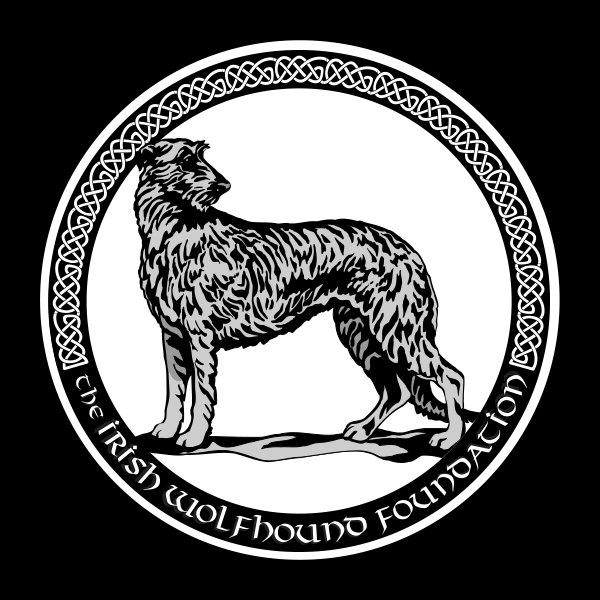The Irish Wolfhound Seizure Study
The study of seizures in Irish Wolfhounds began in September of 1995 in an effort to determine if there was, is or could be a continuing problem with seizures within the breed. The answers are: yes, yes and hopefully not. This health problem in the breed does not approach cancer or heart-related problems in terms of the number affected. Maybe we can keep it that way.
After the University of Pennsylvania agreed to participate, a preliminary questionnaire was developed to reflect the questions of owners, breeders and the team at the university. This questionnaire was sent to full and world-wide associate members of the Irish Wolfhound Club of America and ads were placed in breed club publications.
Follow-up contact is attempted with owners who have submitted forms for animals affected with seizures to clarify and expand information when necessary. New entries and follow up information are processed and forwarded on a regular basis for review by the team at the university. Changes in statistics and new information will appear on this site periodically.
The information in this web site attempts to answer some of the questions asked by owners and breeders of Irish Wolfhounds affected with seizures by presenting some of the statistical data collected to date. It is not, nor is it meant to be, a scientific analysis of these seizures. This site also contains a listing of sources of further information in the Health Library.
Goals of the Study
The extensive detailed "wish list" that was originally submitted to the University of Pennsylvania has been refined to focus on four basic areas.
- Identifying Irish Wolfhounds affected with seizures and categorization of these seizures.
- Addressing problems involved in maintenance of a hound experiencing recurring epileptic seizures.
- Collecting and processing of detailed pedigree information to assist the geneticist and breeders.
- Collecting blood samples from the affected animals entered in the study and their immediate relatives for future DNA testing.
Limits of the Study
The primary limitation of the study is the reluctance of Irish Wolfhound owners/breeders to participate. The Irish Wolfhounds entered in the study by no means represent all individuals of the breed which are or were affected with seizures.
The failure to collect complete data has eliminated some entries from the study. Many of these animals are long since dead and documentation of the particulars involved is incomplete.
The short lifespan of the Irish Wolfhound as a breed has created some difficulties in the blood collection phase of the study as many of the affected hounds are already dead, as are their parents.
Eligibility for Entry into the Study
Any Irish Wolfhound, of any bloodline, living or dead, of any age or sex, from any country that has experienced a seizure or seizures for any reason may be entered. It is important to remember that to determine if a pattern of inheritance exists it is necessary to know also which animals are not affected with seizures, especially those with close degrees of relatedness (aunts, uncles, cousins, grandparents, etc) to the hounds with seizures. These unaffected hounds may also be entered in the study. Remember, too, that use of gene pools in other countries has become increasingly easier and more frequent. It could well be that your affected animal is related to affected ones in different countries.
This study is to explore all types of seizures, not just the suspected inheritable form. Information is also needed about hounds who have had seizures with specific causes, such as drug reactions, disease or environmental influences.
Today's Irish Wolfhounds are the direct descendants of the few hounds used in the nineteenth century. Therefore, despite different breeding programs world wide, all Irish Wolfhounds are related and the information derived from this study applies to and benefits the entire breed community. It is through the international cooperation of many owners and breeders who submitted information that a mode of inheritance has been determined. Risk analysis for seizures in the IW, as well as for PRA (progressive retinal atrophy) & PCD (primary ciliary dyskensia), is available to breeders as a tool for decision making in their breeding programs (note that this service is not provided by the Irish Wolfhound Foundation itself, but by a private individual).
Study Forms
Study Entry Form
Study Entry Form - Control Dogs (9 yrs or older and seizure-free)
Study Update Form
Blood Sample Submission Form
Blood Sample Consent Form
Study Updates
2005 Published Results
October 2021 Update
Additional Study Details
| Study Date(s): | 1995-08-01 |
|---|---|
| Study Status: | Ongoing |
| Enrollment Status: | OPEN to new enrollment |
| Lead Researcher(s): | Margret Casal, Dr med vet, PhD and Paula Henthorn, PhD |


